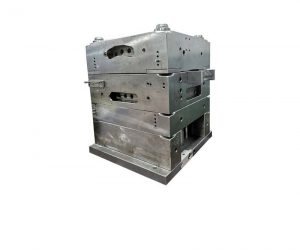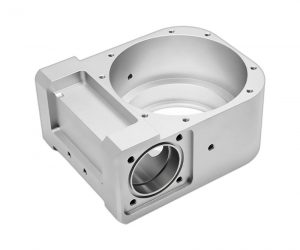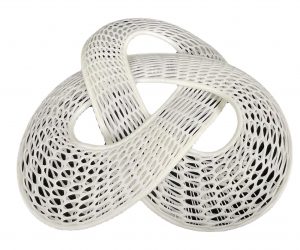The strategic sourcing of medical-grade plastic molds presents a complex calculus, particularly when considering the multifaceted landscape of Chinese manufacturing. While the allure of cost reduction and ostensibly superior production capabilities is undeniable, navigating the inherent risks requires a nuanced understanding beyond simplistic pro-con analyses.
The siren song of Chinese manufacturing, fueled by its vast production capacity and technological advancements in certain sectors, is potent. Numerous manufacturers boast impressive credentials, offering high-precision molds with seemingly competitive pricing structures. However, this apparent bounty masks a treacherous undercurrent of potential pitfalls. The promise of reduced labor costs, a cornerstone of the argument for Chinese sourcing, often overlooks the hidden costs associated with quality control, logistical complexities, and the inherent risks of intellectual property protection within a less transparent regulatory environment.
The challenges extend far beyond mere language barriers. While proficient English-speaking representatives may be presented, the true operational realities often remain obscured. The labyrinthine nature of Chinese supply chains, characterized by a multitude of subcontractors and often opaque quality control processes, necessitates rigorous due diligence. ISO certifications, while providing a baseline assurance, are not a panacea. A thorough audit, encompassing on-site inspections and rigorous verification of materials sourcing, is paramount. The potential for counterfeit materials or substandard manufacturing practices, with potentially catastrophic consequences for medical device safety and efficacy, demands a proactive, even skeptical, approach.
Furthermore, the intellectual property landscape in China remains a significant concern. Robust legal protection for designs and proprietary technologies is not guaranteed, requiring sophisticated contractual safeguards and a deep understanding of Chinese intellectual property law. The seemingly attractive initial cost savings can be rapidly eroded by the unforeseen expenses associated with intellectual property disputes or product recalls resulting from quality failures.
In conclusion, while the potential benefits of sourcing medical-grade plastic molds from China are undeniable, a purely cost-driven approach is myopic. A sophisticated risk assessment, encompassing rigorous due diligence, robust contractual agreements, and a clear understanding of the complexities of the Chinese manufacturing ecosystem, is crucial for mitigating the inherent uncertainties and ensuring the delivery of high-quality, safe, and legally protected medical devices. The decision should not be based on superficial cost comparisons, but on a comprehensive evaluation of the total cost of ownership and the mitigation of potential risks.
The opaque labyrinth of global medical device manufacturing finds a pivotal node in the burgeoning Chinese medical plastic mold industry. This analysis dissects the complexities of sourcing these critical components from China, navigating the treacherous currents of cost, quality, and intellectual property rights. The seemingly straightforward equation of "lower cost, higher volume" masks a reality far more nuanced and potentially perilous for the unwary.
China's dominance in injection molding is undeniable, fueled by a vast, albeit heterogeneous, manufacturing base and a workforce possessing a spectrum of skills, ranging from highly specialized to inadequately trained. This disparity necessitates rigorous due diligence, extending beyond superficial audits and encompassing a deep dive into the manufacturer's supply chain, quality control protocols, and adherence to international standards – a process often fraught with communication barriers and cultural misunderstandings. The allure of competitive pricing, while potent, must be weighed against the potential for catastrophic failures stemming from substandard materials or deficient craftsmanship. The cost savings, therefore, are not guaranteed profits, but rather a gamble with potentially devastating consequences. The production of high-precision molds, while technically achievable, often lacks consistent execution, demanding meticulous oversight and robust quality assurance measures.The seemingly straightforward benefit of cost efficiency is, in reality, a double-edged sword. While initial savings might be substantial, unforeseen delays, rework, or outright mold failure can quickly erode these advantages, leading to escalated costs, project delays, and reputational damage. The ISO 13485 certification, while a benchmark, is not a panacea; its effective implementation must be verified through rigorous independent assessment.Effective communication transcends mere linguistic fluency; it demands a profound understanding of cultural nuances and business practices. The opacity of certain Chinese manufacturing processes necessitates proactive engagement, potentially involving on-site inspections and the deployment of skilled technical personnel to ensure alignment between design specifications and manufacturing realities. Project management requires a level of proactive intervention far exceeding the norms of Western business practices.The specter of intellectual property theft looms large. While NDAs offer a veneer of protection, their enforceability in the Chinese legal system remains a significant concern. The strategic selection of manufacturers, therefore, must extend beyond price considerations to encompass a thorough vetting of their ethical standards and track record regarding intellectual property protection. This necessitates a level of investigation and risk assessment that many companies are ill-equipped to handle.In conclusion, sourcing medical plastic molds from China presents a high-stakes gamble. The potential rewards – significant cost savings and access to advanced manufacturing capabilities – are undeniable, but only achievable through a proactive, multi-faceted approach that transcends superficial due diligence and embraces a sophisticated understanding of the cultural, legal, and operational complexities inherent in this globalized manufacturing landscape. Failure to navigate these complexities effectively can lead to significant financial losses, reputational damage, and, critically, compromise patient safety.
What is Medical Plastic Mold and Why is it Important?
Medical plastic mold is a process of shaping plastic materials into various medical devices and components using a mold or a tool. The mold is usually made of metal and has cavities that match the shape and size of the desired product. The plastic material is heated until it becomes molten and then injected into the mold under high pressure. The mold is then cooled down and the plastic product is ejected.
Medical plastic mold is important because it can produce complex and precise medical devices and components that are essential for various medical applications, such as diagnosis, treatment, surgery, implantation, drug delivery, etc. Medical plastic mold products can have various advantages over other materials, such as:
- Lightweight and durable
- Flexible and adaptable
- Biocompatible and sterilizable
- Cost-effective and recyclable
Some examples of medical plastic mold products are:
- Syringes and needles
- Catheters and tubes
- Surgical instruments and implants
- Test tubes and vials
- Containers and trays
- Masks and gloves
- etc.
What are the Advantages and Disadvantages of Sourcing Medical Plastic Mold Products from China?
China is one of the leading countries in the world that produces medical plastic mold products. According to a report by Grand View Research, the global medical plastics market size was valued at USD 28.06 billion in 2020 and is expected to grow at a compound annual growth rate (CAGR) of 7.2% from 2021 to 2028. China accounted for 28.9% of the global market share in 2020 and is projected to maintain its dominance throughout the forecast period.
Sourcing medical plastic mold products from China can have various advantages for your business, such as:
- Lower cost: China has a large pool of skilled labor, advanced equipment, abundant raw materials, and favorable policies that can lower the production cost of medical plastic mold products. You can save up to 30% to 50% of your manufacturing cost by sourcing from China compared to other countries.
- Higher quality: China has improved its quality standards and regulations in recent years to meet the increasing demand and expectations of domestic and international customers. Many Chinese plastic molding companies have obtained ISO certifications, FDA approvals, CE markings, etc., that can ensure the quality and safety of their products.
- Faster delivery: China has a well-developed infrastructure, logistics, and transportation system that can facilitate the delivery of medical plastic mold products to your destination. You can reduce your lead time by sourcing from China compared to other countries.
- More variety: China has a large and diverse market that can offer you a wide range of medical plastic mold products with different specifications, features, functions, designs, etc. You can find more options and choices by sourcing from China compared to other countries.
However, sourcing medical plastic mold products from China can also have some disadvantages for your business, such as:
- Language barrier: China has a different language and culture than yours, which can cause communication difficulties and misunderstandings between you and your supplier. You may need to hire a translator or an agent to help you communicate effectively with your supplier.
- Quality risk: China has a large number of plastic molding companies with varying levels of quality and professionalism. You may encounter some unqualified or fraudulent suppliers that can deliver substandard or defective products to you. You may need to conduct thorough research, verification, and inspection to ensure the quality and reliability of your supplier.
- Intellectual property risk: China has a different legal system and intellectual property protection than yours, which can expose your product design, patent, trademark, etc., to potential infringement or theft by your supplier or competitors. You may need to sign a non-disclosure agreement (NDA) or a contract with your supplier to protect your intellectual property rights.
- Customs and tax risk: China has a different customs and tax system than yours, which can affect the import and export of medical plastic mold products. You may need to comply with various rules, regulations, tariffs, duties, etc., that can increase your cost and complexity of sourcing from China.
How to find a reputable and professional plastic molding company in China?
Finding a reputable and professional plastic molding company in China can be a challenging task. There are many factors to consider, such as the quality of the products, the reliability of the service, the cost-effectiveness of the price, and the reputation of the company in the market. Here are some tips to help you find a suitable plastic molding company in China:
- Do your research. Before contacting any potential plastic molding company, you should do some background research on their website, social media, online reviews, and industry certifications. You should also check their portfolio of previous projects and clients to see if they have experience in your field and can meet your specifications and standards.
- Ask for referrals. One of the best ways to find a reputable and professional plastic molding company in China is to ask for referrals from your business partners, friends, or industry associations. They may have worked with or know some reliable plastic molding companies that can provide high-quality products and services. You can also ask them about their experience and satisfaction with the plastic molding company they recommend.
- Compare quotes. Once you have a shortlist of potential plastic molding companies in China, you should contact them and request for quotes. You should compare the quotes based on the scope of work, materials, delivery time, warranty, and after-sales service. You should also negotiate the terms and conditions of the contract and make sure there are no hidden fees or charges.
- Visit the factory. If possible, you should visit the factory of the plastic molding company you are interested in. This will give you a chance to see their production facilities, equipment, quality control systems, and staff. You can also inspect their samples and prototypes and verify their compliance with your requirements. Visiting the factory will also help you establish a good relationship with the plastic molding company and build trust and confidence.
What are the best practices and tips for working with a plastic molding company in China?
Working with a plastic molding company in China can be a rewarding and cost-effective way to produce high-quality plastic products. However, there are some best practices and tips that you should follow to ensure a smooth and successful collaboration. Here are some of them:
- Do your research. Before you choose a plastic molding company in China, you should do some background checks on their reputation, experience, quality standards, certifications, and customer feedback. You can also ask for samples or references from previous clients to verify their work quality and reliability.
- Communicate clearly and frequently. Communication is key when working with a plastic molding company in China, especially if there are language or cultural barriers. You should communicate your expectations, specifications, deadlines, and feedback clearly and frequently throughout the project. You can also use tools like video calls, online platforms, translators, or third-party agents to facilitate communication and avoid misunderstandings.
- Plan ahead and be flexible. Working with a plastic molding company in China may involve some challenges such as time differences, shipping delays, customs clearance, or unexpected changes. You should plan ahead and anticipate potential issues or risks that may arise during the project. You should also be flexible and adaptable to cope with any changes or problems that may occur along the way.
- Respect the culture and business etiquette. Working with a plastic molding company in China also means respecting their culture and business etiquette. You should be polite, courteous, and professional when interacting with them. You should also avoid any sensitive topics or actions that may offend them or damage the relationship. You can learn more about the Chinese culture and business etiquette from online resources or local experts.
How to ensure quality and safety of medical plastic mold products from China?
Medical plastic mold products from China are widely used in various fields, such as medical devices, pharmaceutical packaging, surgical instruments, and disposable supplies. However, these products also pose potential risks to the health and safety of patients and medical staff if they are not manufactured and tested according to strict standards and regulations. Therefore, it is important to ensure the quality and safety of medical plastic mold products from China before purchasing and using them.
Some of the steps that can be taken to ensure the quality and safety of medical plastic mold products from China are:
- Check the qualifications and certifications of the manufacturer and supplier. The manufacturer and supplier should have valid licenses and certificates from relevant authorities, such as the China Food and Drug Administration (CFDA), the International Organization for Standardization (ISO), and the CE mark. These credentials indicate that the manufacturer and supplier have met the requirements for quality management, product safety, and environmental protection.
- Verify the material and design of the product. The material and design of the product should be suitable for its intended use and comply with the specifications and standards of the target market. For example, the material should be biocompatible, sterilizable, durable, and resistant to corrosion and deformation. The design should be ergonomic, functional, and easy to operate and maintain.
- Conduct quality inspection and testing of the product. The product should undergo quality inspection and testing before shipment and after arrival. The inspection and testing should cover aspects such as appearance, dimensions, performance, functionality, reliability, and safety. The inspection and testing methods should follow the guidelines and protocols of the target market. The inspection and testing results should be documented and traceable.
- Seek professional advice and assistance if needed. If there are any doubts or questions about the quality and safety of medical plastic mold products from China, it is advisable to consult with experts or professionals in the field. They can provide guidance, recommendations, feedback, and support on how to select, evaluate, verify, and use medical plastic mold products from China.


